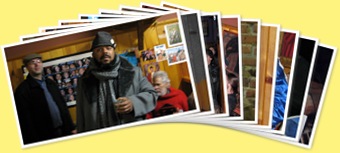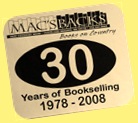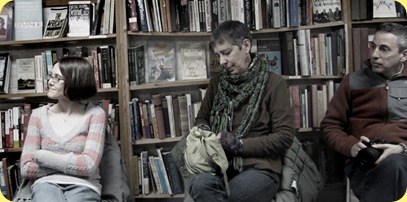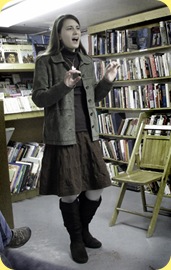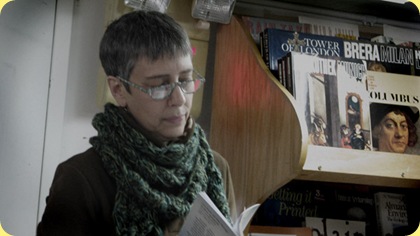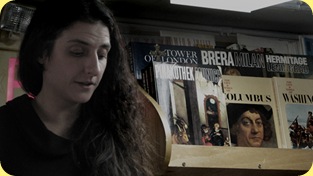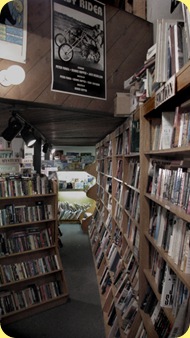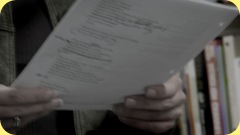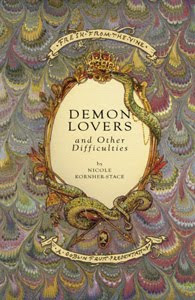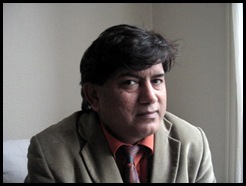I like paper. I like books. I'm a tactile person. I like to be able to hold a book, to turn the pages, to underline sentences. You can read a book anywhere, anytime. If the batteries run out, you can still read a book...because it doesn't run on batteries! Maybe I'm clinging to dinosaur sentimentalities, but I like being able to hold something that exists in the "real world", something that we might be losing touch with. So much of life right now takes place on a computer screen. It's where we conduct our relationships (i.e. FaceBook, MySpace, even this blog!), how we work, how we watch movies and television, how we attend classes, how we listen to music, how we receive our news--heck, you can even order dinner from your computer and have it show up at your door! There is very little that a person cannot do with an internet connection. I don't know that I want it to also be the place where I need to go to read my books.
Aside from that, there's the practicality and solidity of a book. You can loan a book to a friend, and unlike with the fiasco earlier this year when e-books bought for Kindles were being subsequently wiped, it's much harder for someone who sold you a book to then creep into your house and steal it back. And of course, with the internet, we've been told over and over again that publishing your work online leaves you infinitely more susceptible to plagiarism and theft of your intellectual property.
That being said, in case you haven't noticed, the internet is growing faster than any technology we've had to date and is solidly rooting itself in human life for the forseeable future. If you don't believe me, check out this video. So what does this mean for the small press industry and poetry publishing?
Poetry is already an artform with several strikes against it in terms of popularity and sustainability. Do we dare add one more by clinging to the small press format and shunning online publishing?
How much entertainment can be found (legally) for free on the internet right now? But small presses are still asking five, ten, twelve dollars, or even more for an issue of a print journal. I know that all writers would love to subscribe to as many journals as possible and support the organizations that support our work, but most can't afford to subscribe to dozens of quarterlies. So then we must ask what is more important? Getting money for our work from the handful who will pay for it? Or getting our work into the hands (or screens, as it may be) of eager readers?
Human beings are the most adaptable creatures on the planet. We have managed to survive in the hottest deserts, the coldest tundras, mountain regions, grassy plains, swamp lands, coastal regions. We can outlast hurricanes, earthquakes, volcanoes, wildfires, and anything else that Mother Nature throws our way. So why is it that we as writers--not the entire human population, but only a very specialized segment of it--are having such difficulty adapting to this brand new terrain and climate called the internet?
I don't think that this means that all print publications should surrender all to online publication. I'm sure the answer lies somewhere in the middle, somehow creating a mutual relationship between the online world and the print, such that each can feed and nourish the other. The music industry is working hard to adapt to a new environment spawned by the advent of Napster and the like. There is an equally viable solution somewhere out there that the poetry world could employ to its advantage. We just haven't engaged our creative forces in that direction yet.
If smaller, struggling literary journals take notice and act now, this could be the opportunity to resurge and reach widespread audiences that formerly wouldn't take notice of a tiny little poetry mag. Or, this could be the end of the small press. But one thing is for certain: hiding in a fortress of paper and ink, hoping that all the ones and zeros will go away if we wait long enough, is guaranteeing extinction.

















